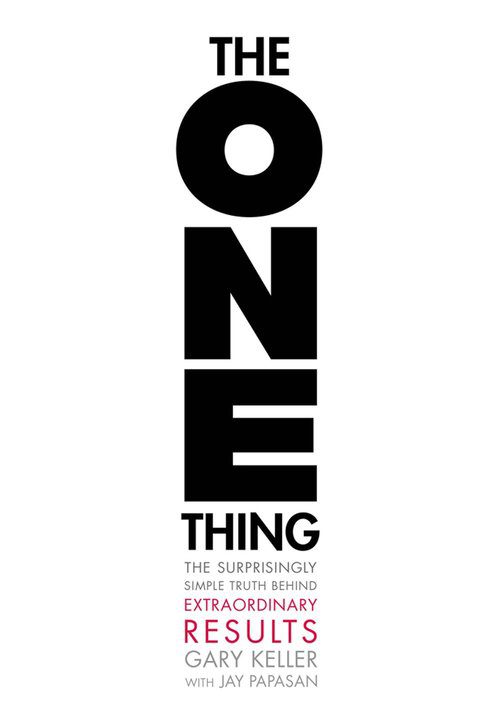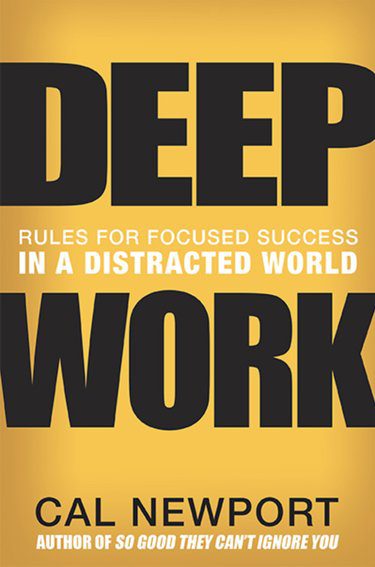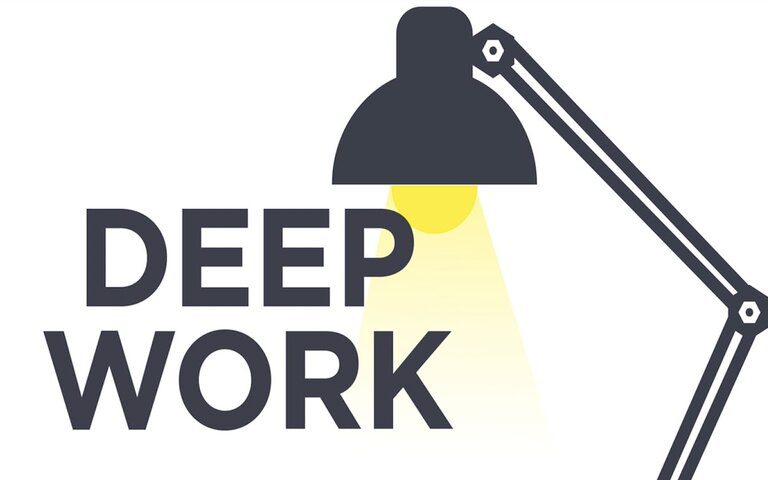Single-tasking is the act of focusing on one thing at a time. To single-task is to fully immerse oneself and concentrate on one activity at a time. For most of us, multitasking is our natural default mode; we constantly switch from one task to another, switch across multiple web browsers, and self-interrupt our work. Time tracking software Rescuetime estimates that we switch between apps and websites more than 300 times a day and check email or chat every 6 minutes. This continuous context task switching comes with an enormous cost. To gain traction in any activity, one has to reduce the dis(tractions) that could sway one away from the task at hand. We live in a world where there is a plethora of tools, technologies and activities that are readily available to get us distracted.
A research study led by Gloria Mark from UC Irvine 1 found that people compensate for interruptions by working faster, but this comes at a price: they experience more stress, frustration, time pressure, and effort.
When people are constantly interrupted, they develop a mode of working faster (and writing less) to compensate for the time they know they will lose by being interrupted. Yet working faster with interruptions has its cost: people in the interrupted conditions experienced a higher workload, more stress, higher frustration, more time pressure, and effort. So interrupted work may be done faster, but at a price. In an interview about their research finding, Mark told Fast Company 2 that:
We often context switch every three minutes and five seconds and it takes an average of 23 minutes and 15 seconds to get back to the task.
According to Harvard psychologists Matthew A. Killingsworth and Daniel T. Gilbert 3, we spend at least half our time thinking about something other than our immediate surroundings, and most of this daydreaming doesn’t make us happy. As author and motivational speaker Zig Ziglar often said, “Don’t become a wandering generality. Be a meaningful specific.”
You have only so much time and energy, so when you spread yourself out, you end up spread thin. You want your achievements to add up, but that actually takes subtraction, not addition. You need to be doing fewer things for more effect instead of doing more things with side effects.

Focus on One Thing 4
To achieve an extraordinary result you must choose what matters most and give it all the time it demands. This requires getting extremely out of balance in relation to all other work issues, with only infrequent counterbalancing to address them. In your personal world, awareness is the essential ingredient.
The Focusing Question
Anyone who dreams of an uncommon life eventually discovers there is no choice but to seek an uncommon approach to living it. The Focusing Question is that uncommon approach. In a world of no instructions, it becomes the simple formula for finding exceptional answers that lead to extraordinary results.”
What’s the ONE Thing I can do such that by doing it everything else will be easier or unnecessary?
When you do the right task first, you also build the right mindset first, the right skill first, and the right relationship first. Powered by the Focusing Question, your actions become a natural progression of building one right thing on top of the previous right thing. When this happens, you’re in position to experience the power of the domino effect.
Be like a postage stamp— stick to one thing until you get there.—Josh Billings

Deep Work 5
As intelligent machines improve, and the gap between machine and human abilities shrinks, employers are becoming increasingly likely to hire “new machines” instead of “new people.” And when only a human will do, improvements in communications and collaboration technology are making remote work easier than ever before, motivating companies to outsource key roles to stars—leaving the local talent pool underemployed. Deep work is not some nostalgic affectation of writers and early-twentieth-century philosophers. It’s instead a skill that has great value today.
Deep Work vs Shallow Work
- Deep Work: Professional activities performed in a state of distraction-free concentration that push your cognitive capabilities to their limit. These efforts create new value, improve your skill, and are hard to replicate.
- Shallow Work: Noncognitively demanding, logistical-style tasks, often performed while distracted. These efforts tend to not create much new value in the world and are easy to replicate
The key to developing a deep work habit is to move beyond good intentions and add routines and rituals to your working life designed to minimize the amount of your limited willpower necessary to transition into and maintain a state of unbroken concentration.
Create constraints for yourself
I recently discovered a Google Chrome extension called Tab Limiter, which has been transformative for my workflow. Tab limiter helps you regain control over your browsing by limiting the number of tabs you can open at once. You can specify the number of tabs in total and per window. I used to open multiple tabs, sometimes 50 tabs at a time but since I started using the tab limiter, I now open a maximum of 5 tabs at a time. This little tweak in my workflow has made me more productive, and I now single-task instead of multitasking.
Meditations
Daily Calm with Tamara Levitt – A Solid Place
The world can seem chaotic. Many days, we face an endless rush of news, conflicts, tragedies, and injustices. As a result, it’s natural to feel unsteady or ungrounded in our lives. We can become so preoccupied with updates and headlines that stress and anxiety can disconnect us from our physical bodies. It can be a lofty challenge to create stability in an unstable world.
One way of finding ground is to call ourselves back to the body. In practice, the breath is one way we can reorient ourselves to the present moment, but the body offers a wealth of other sensations that we can call on to bring us back to the solid ground of the here and now.
“Be strong then, and enter into your own body; there you have a solid place for your feet.”— Kabir
Daily Jay with Jay Shetty – Learn to Fall
You will make mistakes when you are broadening your horizon, pushing your boundaries, or trying new things. You will slip, trip, fall and fail, but don’t let the fear of failure stop you. Accept that it will happen, and prepare for it. If you refuse to accept that you may stumble, it’s harder to bounce back when you do. Don’t resist the fall, that can only make it, hurt more.
I choose to treat myself with compassion.
Daily Trip with Jeff Warren – One Space
Experience is made of space, it is in you, and it surrounds you.
Podcast
- Why Our Obsession With Productivity Is All Wrong – Oliver Burkeman: Chris Williamson Podcast
All the best in your quest to get better. Don’t Settle: Live with Passion



Comments are closed.